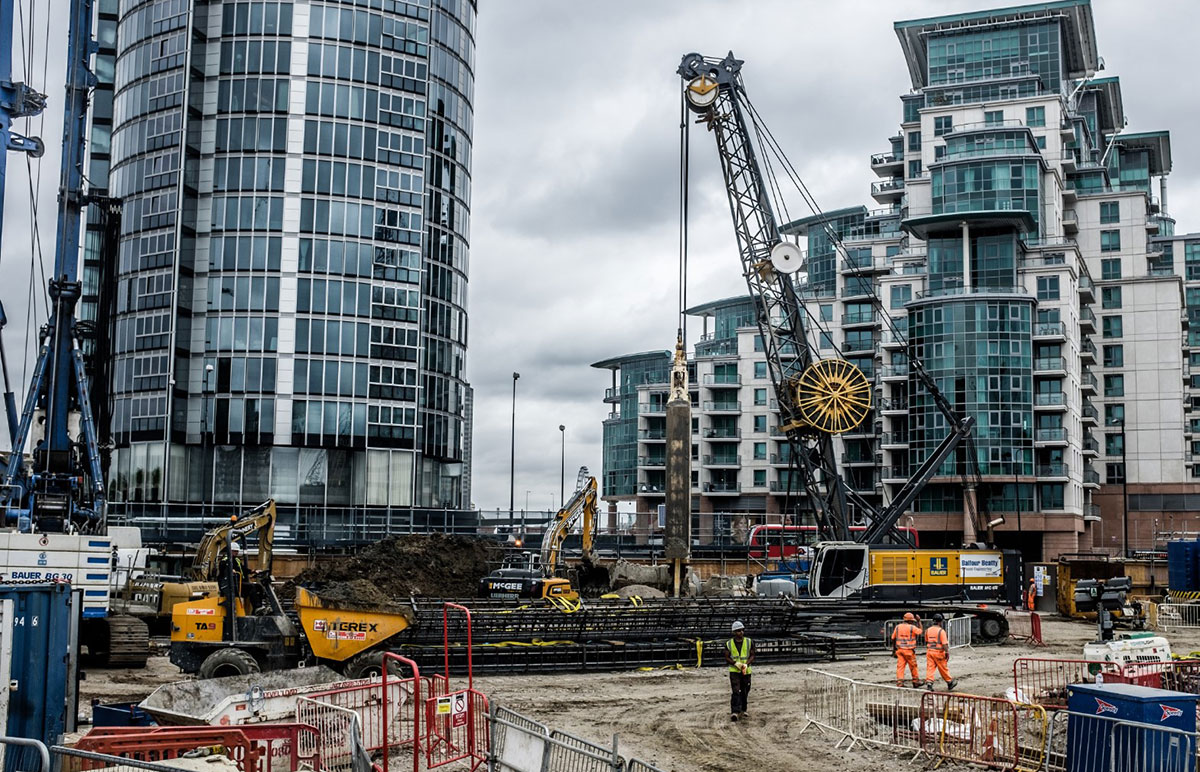What Does Geotheta Do?
What Does Geotheta Do?
Blog Article
Geotheta Can Be Fun For Anyone
Table of ContentsThe Best Strategy To Use For GeothetaGetting My Geotheta To WorkGeotheta Can Be Fun For AnyoneFacts About Geotheta UncoveredLittle Known Questions About Geotheta.

They conduct site examinations, gather examples, execute research laboratory examinations, and analyze information to review the viability of the ground for construction tasks - Engineer of Record. Based upon their findings, geotechnical designers supply referrals for foundation style, slope security, maintaining structures, and mitigation of geotechnical dangers. They collaborate with various other specialists, such as engineers, structural engineers, and building and construction groups, to ensure that geotechnical factors to consider are integrated right into the total project design and application
By examining the actions and properties of dirt and rock, they can recognize prospective geotechnical hazards such as landslides, soil negotiation, or slope instability. Their knowledge helps protect against failures or mishaps that can jeopardize lives and building. Below are some comprehensive tasks and responsibilities of a geotechnical engineer: Website Investigation: Geotechnical designers conduct website examinations to collect data on subsurface conditions.
They translate the information to comprehend the residential or commercial properties and habits of the soil and rock, including their stamina, permeability, compaction features, and groundwater problems. Geotechnical Analysis and Design: Geotechnical designers analyze the information accumulated during website investigations to analyze the security and viability of the site for building and construction jobs. They do geotechnical calculations and modeling to evaluate elements such as birthing ability, settlement, slope stability, lateral planet stress, and groundwater circulation.
The Basic Principles Of Geotheta
Structure Design: Geotechnical designers play an important function in developing foundations that can safely sustain the intended framework. They assess the dirt problems and load demands to identify the proper foundation kind, such as superficial foundations (e.g., grounds), deep foundations (e.g (https://profile.hatena.ne.jp/geotheta/)., stacks), or specialized methods like soil renovation. They think about factors such as negotiation limitations, birthing capability, and soil-structure communication to establish ideal foundation layouts
They review building and construction strategies, monitor site tasks, and conduct field assessments to confirm that the design recommendations are adhered to. If unforeseen geotechnical concerns emerge, they assess the scenario and provide recommendations for remediation or changes to the layout. Risk Evaluation and Reduction: Geotechnical engineers evaluate geotechnical threats and threats related to the project website, such as landslides, liquefaction, or dirt disintegration.

Partnership and Communication: Geotechnical engineers function carefully with other specialists associated with a job, such as designers, structural designers, and building teams. Reliable interaction and partnership are important to incorporate geotechnical considerations right into the general job design and building procedure. Geotechnical designers provide technological expertise, solution queries, and ensure that geotechnical needs are fulfilled.
Getting My Geotheta To Work
Right here are some kinds of geotechnical designers: Structure Designer: Structure designers specialize in making and examining structures for frameworks. They examine the soil conditions, lots needs, and site attributes to figure out the most appropriate structure kind and design, such as shallow foundations, deep structures, or specialized techniques like stack structures.
They evaluate the variables influencing incline stability, such as dirt buildings, groundwater problems, and incline geometry, and develop techniques to stop slope failures and alleviate threats. Quake Engineer: Earthquake engineers specialize in assessing and creating frameworks to endure seismic forces. They evaluate the seismic risk of a site, evaluate dirt liquefaction potential, and develop seismic design requirements to make sure the security and durability of frameworks during quakes.
They execute field screening, gather samples, and examine the gathered information to define the soil buildings, geologic formations, and groundwater conditions at a website. Geotechnical Instrumentation Engineer: Geotechnical instrumentation engineers concentrate on monitoring and measuring the behavior of soil, rock, and structures. They mount and preserve instrumentation systems that monitor elements such as soil negotiation, groundwater levels, incline movements, and architectural displacements to assess efficiency and supply very early warnings of potential issues.
The Geotheta Statements
They carry out tests such as triaxial tests, combination tests, direct shear examinations, and permeability examinations to collect information for geotechnical evaluation and layout. Geosynthetics Engineer: Geosynthetics designers specialize in the style try this website and application of geosynthetic materials, such as geotextiles, geogrids, and geomembranes. They utilize these materials to improve soil security, enhance slopes, provide drainage solutions, and control disintegration.
They tend to be investigatory people, which indicates they're intellectual, introspective, and analytical. They wonder, systematic, rational, analytical, and logical. Some of them are also social, suggesting they're kind, charitable, participating, individual, caring, practical, understanding, sensible, and pleasant. Does this sound like you? Take our complimentary career examination to locate out if geotechnical designer is one of your leading profession suits.
In the workplace environment, geotechnical engineers use specialized software application tools to carry out estimations, produce designs, and evaluate information. They prepare reports, evaluation task specifications, connect with customers and employee, and coordinate project activities. The workplace setting provides a conducive environment for research, analysis, and cooperation with various other specialists associated with the job.
Geotheta Things To Know Before You Get This
They frequently see project websites to perform site investigations, evaluate geotechnical conditions, and gather information for evaluation. These brows through involve traveling to various places, often in remote or challenging terrains. Geotechnical engineers may perform soil tasting, conduct examinations, and monitor building activities to ensure that the geotechnical aspects of the project are being carried out correctly.
Geotechnical designers likewise function in specialized geotechnical laboratories. Geotechnical research laboratory engineers function extensively in these environments, dealing with testing equipment, running tools, and videotaping information.
Report this page